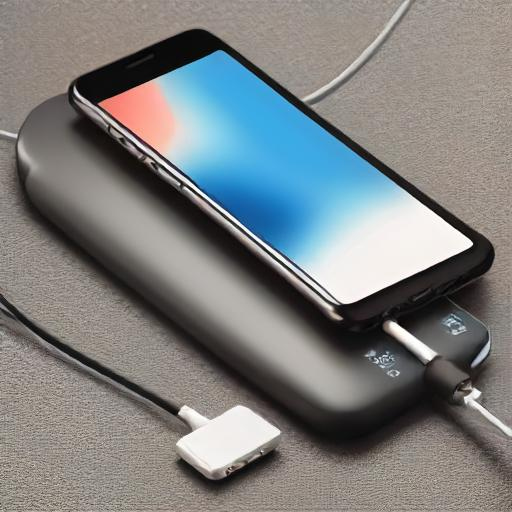Wireless charging technology has completely changed the way we juice up our phones. Previously, you would have to manually connect your charger to the wall socket before powering it up but thanks to wireless charging you don’t need all of that. You just need to place your phone on a compatible pad.
I would say we have come a long way in consumer electronics. Using a wireless charger has pros and cons, which is what this post is about. What are the downsides to using a wireless charger? What is the negative or positive effect it has on your battery?
These are the questions we will be answering In this blog post, we’ll explore wireless charging technology, its compatibility with various devices, its speed compared to wired charging, and its effects on battery health and device performance.
Read Also: The Evolution of E-commerce: 6 Tips to Avoid Online Scams
1. What is Wireless Charging Technology?

Wireless charging, also known as inductive charging, allows devices to be charged without a physical connection to a charger. This technology typically relies on electromagnetic fields to transfer energy between two objects—a charging pad and a compatible device.
The most common standard for wireless charging is Qi (pronounced “chee”), developed by the Wireless Power Consortium. The Qi standard uses inductive coupling, where a magnetic coil in the charger generates a magnetic field that induces a current in a coil within the device, thus charging the battery.
2. Which Types of Devices Support Wireless Charging?
Wireless charging is increasingly becoming a standard feature in modern electronic devices. The types of devices that support wireless charging include:
- Smartphones: Most high-end and mid-range smartphones from manufacturers like Apple, Samsung, Google, and LG support wireless charging.
- Smartwatches: Popular models, such as the Apple Watch and Samsung Galaxy Watch, are compatible with wireless charging.
- Earbuds: Many wireless earbuds, including Apple AirPods and Samsung Galaxy Buds, come with wireless charging cases.
- Tablets: Some tablets, though less common than smartphones, support wireless charging.
- Laptops: A few laptop models are starting to incorporate wireless charging capabilities, although this is still relatively rare.
Read Also: The Evolution of E-commerce: 6 Tips to Avoid Online Scams
3. What is the Charging Speed Compared to Wired Charging?

One of the most significant differences between wireless and wired charging is the speed at which devices are charged.
- Wired Charging: Typically offers faster charging speeds. Modern wired chargers can deliver up to 100 watts of power, significantly reducing the time required to charge a device fully.
- Wireless Charging: Generally slower, with standard wireless chargers providing between 5 to 15 watts of power. Recent advancements have introduced wireless chargers that can deliver up to 30 watts, but this is still slower compared to wired alternatives.
The slower speed of wireless charging is due to energy loss during the transfer process and the need to manage heat generation more effectively.
4. How Does Wireless Charging Affect Your Battery Health?
The impact of wireless charging on device performance and battery health is a topic of much debate. Here are some key points to consider:
- Heat Generation: Wireless charging tends to produce more heat than wired charging. Excessive heat can degrade battery health over time, reducing its capacity and lifespan. However, modern wireless chargers and devices are designed with thermal management systems to mitigate this issue.
- Battery Cycles: Every charge and discharge cycle contributes to battery wear. Wireless charging, especially overnight or during extended periods, can lead to more frequent, shallow charging cycles, which may affect battery longevity.
- Convenience vs. Battery Health: While wireless charging offers unparalleled convenience, it’s advisable to use it alongside wired charging to optimize battery health. For instance, using wired charging for faster power-ups and wireless charging for top-offs and overnight charging can strike a balance.
Conclusion
Wireless charging technology provides a hassle-free way to power your devices, enhancing convenience and reducing cable clutter. While it may not match the speed of wired charging, the ongoing advancements in this technology continue to narrow the gap. Being mindful of potential heat generation and charging cycles can help mitigate any adverse effects on battery health. Ultimately, combining both wireless and wired charging methods can offer the best of both worlds, ensuring your devices remain charged and healthy.
As technology evolves, so too will wireless charging, promising even faster, more efficient, and safer ways to keep our devices powered up and ready to go.
Follow us on Facebook @InfoHealthGH



